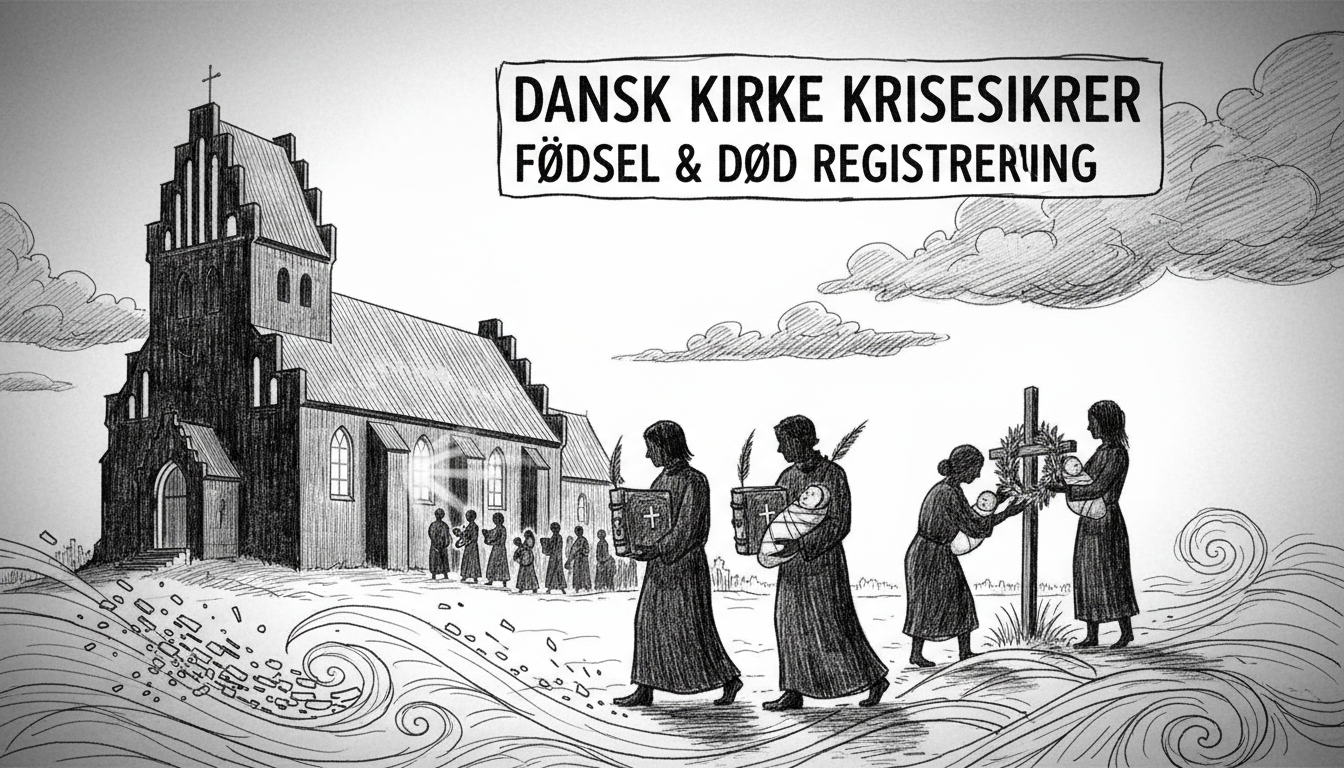The Church of Denmark is developing emergency protocols to maintain birth and death registration during potential crises. This preparation comes as Denmark strengthens national resilience measures.
Church authorities confirm they must ensure continued registration operations even if digital systems fail. Power outages or cyberattacks could disrupt electronic records. The church will implement manual registration methods as backup.
Anton Pihl leads the Association of Parish Councils. He stated this is a priority task for the state. Proper documentation of births and deaths remains crucial during emergencies.
The contingency plan involves returning to analog systems. Churches will use pre-printed forms and physical record books. Local parishes must store these documents securely.
Pihl explained the reasoning behind these preparations. Both businesses and government entities now focus on emergency planning. The church wants to contribute meaningfully to civil society during crises.
Denmark's emergency preparedness requires citizens to maintain three days of food and water. Municipalities currently inspect public shelters nationwide. The church's planning aligns with these broader national security efforts.
A special crisis team operates within the Church of Denmark. This group includes bishops, priests, and parish council representatives. They develop recommendations for how churches can serve as community hubs during emergencies.
Denmark contains over 2,000 churches nationwide. These buildings could provide shelter, community spaces, and emotional support during crises. Church leaders emphasize their role in offering hope and stability.
The crisis team will complete its recommendations by early 2026. Their work represents a significant shift in how religious institutions approach emergency management.
This development reflects growing concerns about infrastructure vulnerability. Many European countries now reassess their emergency response capabilities. Denmark's approach integrates traditional institutions into national security frameworks.
The manual registration system echoes historical practices before digitalization. Churches maintained physical record books for centuries. This return to basics demonstrates practical crisis planning.
International observers note Denmark's comprehensive approach to civil preparedness. The country consistently ranks high in global security indexes. Involving religious institutions in emergency planning shows innovative thinking.
What does this mean for Denmark's residents? The church maintains vital records regardless of technological failures. This provides reassurance about administrative continuity during difficult times.
The church's expanded role during emergencies could reshape community relationships. Religious buildings might become multipurpose crisis centers. This represents both practical and symbolic importance for Danish society.

